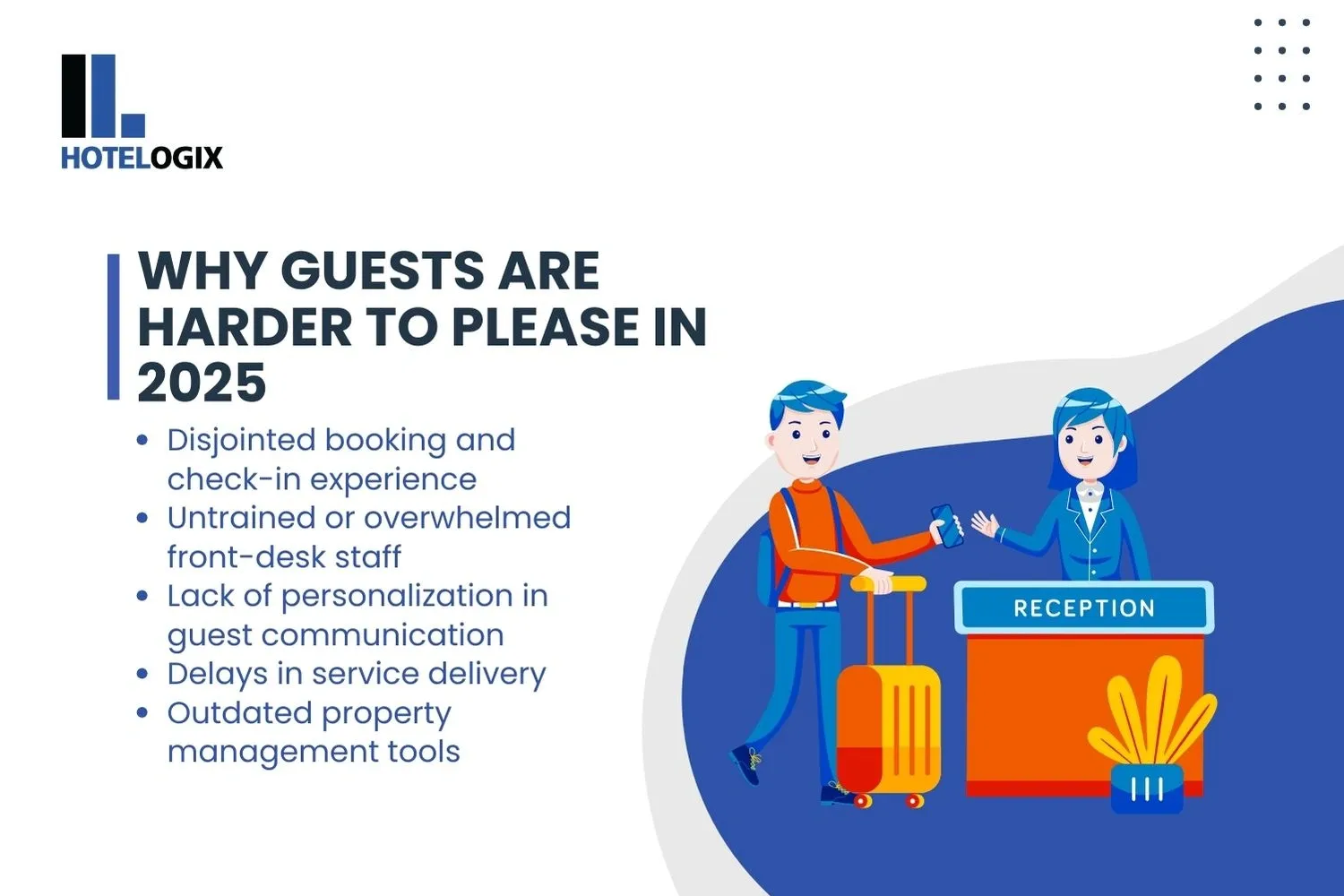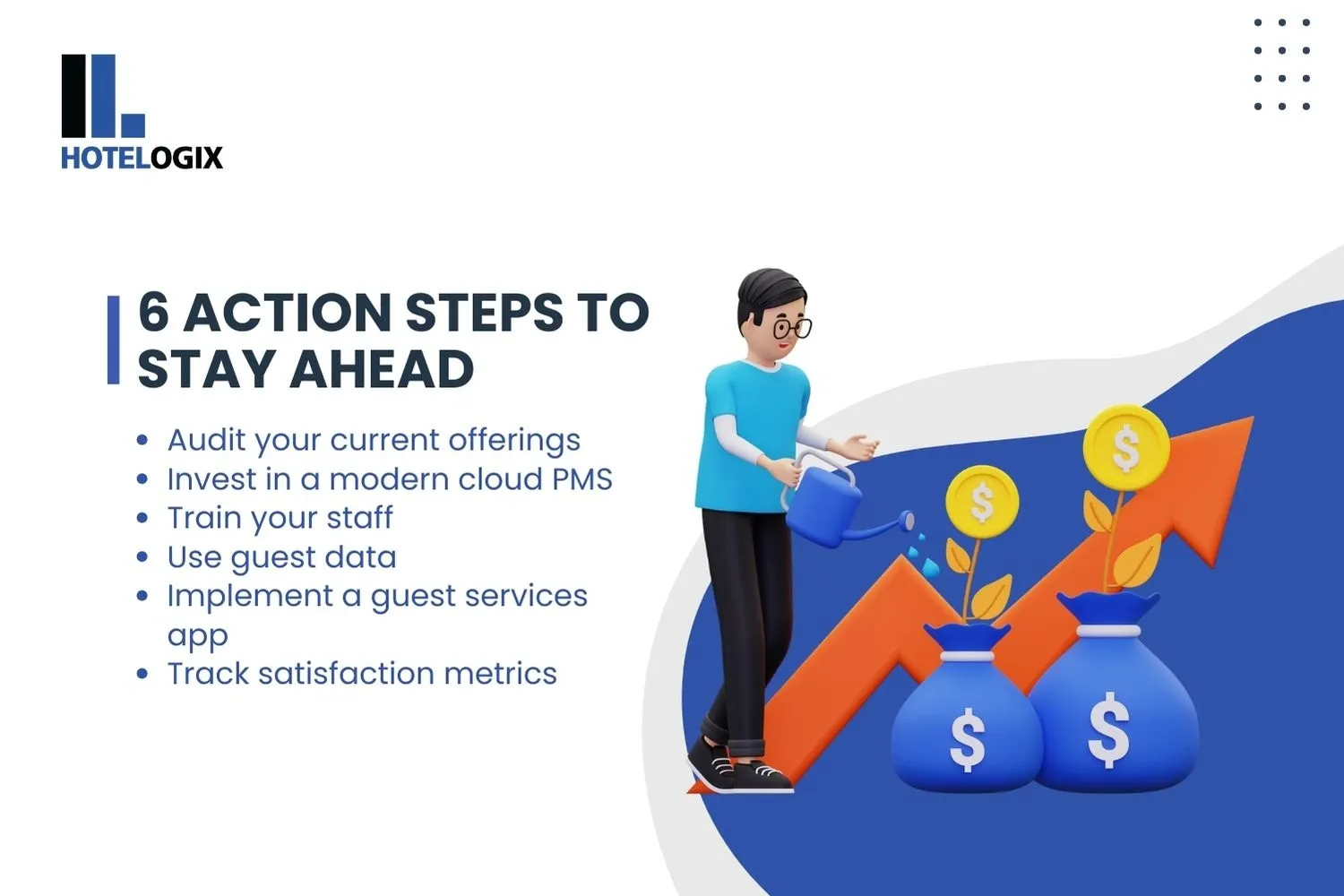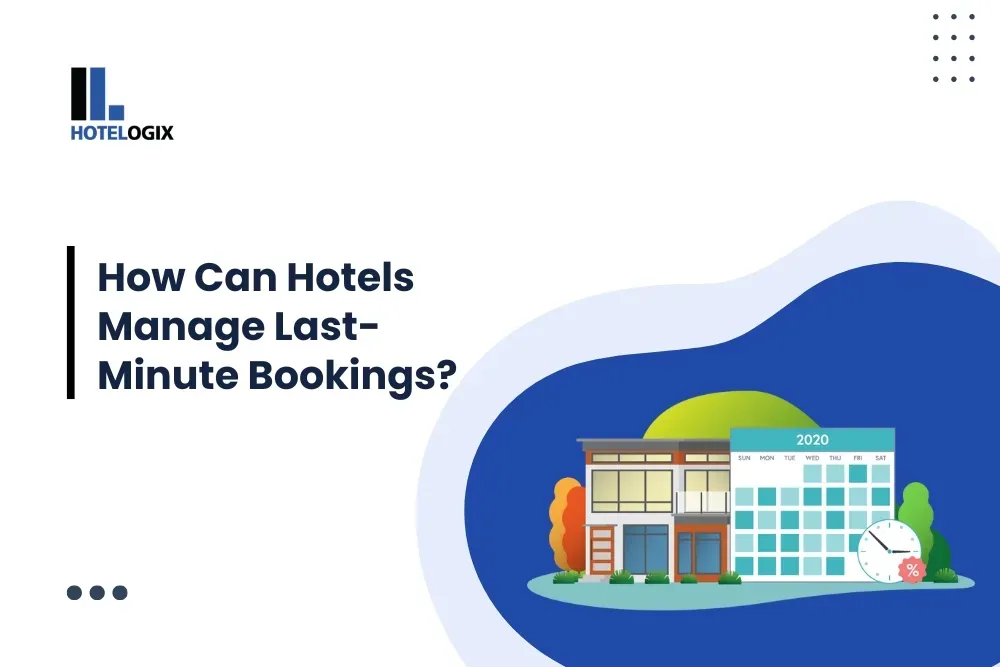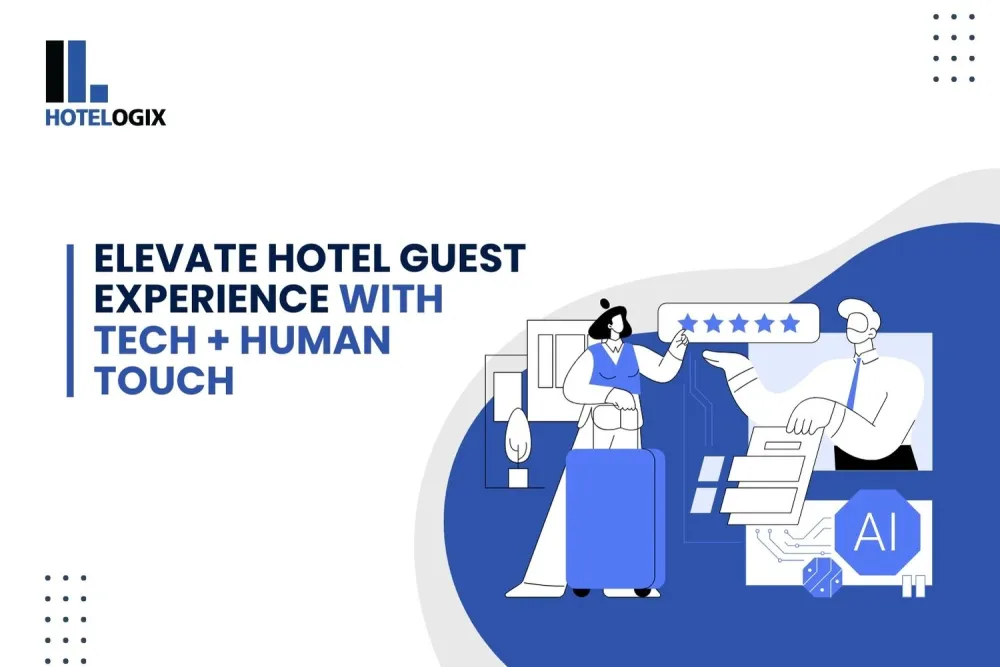The New Reality of Guest Expectations
The hospitality landscape is evolving faster than ever. What used to be considered luxury — free Wi-Fi, premium bedding, or complimentary breakfast — has now become the bare minimum. Guests today demand smooth digital experiences and deeply personalized service.
If you're still offering yesterday’s perks and calling them unique, you're already behind.
According to STR and J.D. Power reports, guest satisfaction scores have plateaued over the last few years. The issue isn't necessarily declining service — it’s that guest expectations have outpaced standard offerings. Travelers now judge a hotel by how effortlessly it meets their needs, not just by what it offers.
Table: Then vs. Now — Guest Expectations at a Glance
The shift is clear: convenience, speed, and personalization now define great hospitality.
Are Hotels Falling Behind?
The latest J.D. Power North America Hotel Guest Satisfaction Index Study reveals a concerning trend: overall guest satisfaction dropped to 647 on a 1,000-point scale in 2024, down from 655 the previous year. This decline isn't uniform across segments – luxury hotels saw only a minor 2-point dip while economy properties plummeted by 20 points.
Why such disparity? As J.D. Power hospitality practice lead Andrea Stokes notes: "Traveler expectations have increased along with hotel room rates, and when hotels do not meet or exceed those expectations, the perception of value for money declines."
What this means for hoteliers:
Today’s guests don’t just want more — they want better, faster, and smarter.
Why Guests Are Harder to Please in 2025

Guests now compare your hotel not just with competitors, but with brands like Amazon, Uber, and Airbnb. They expect intuitive, tech-enabled service and emotional connection — not just clean rooms and good food.
Common Gaps That Impact Satisfaction
- Disjointed booking and check-in experience Inconsistencies between online booking platforms and the in-person check-in process often lead to delays or confusion.
- Untrained or overwhelmed front-desk staff When staff are undertrained or bogged down by manual tasks, guest service suffers.
- Lack of personalization in guest communication Generic messages and impersonal service make guests feel like just another room number.
- Delays in service delivery Slow responses to guest requests negatively impact overall satisfaction and reviews.
- Outdated property management tools Legacy systems prevent real-time updates and hinder seamless service delivery.
Creating a Guest-Centric Culture Is No Longer Optional
To stay competitive, hotels must shift from a transactional mindset to an experience-driven one. Guests want to feel heard, recognized, and cared for — not just accommodated.
Recent research reveals that meaningful guest interactions make a tremendous difference. Properties that encourage staff engagement beyond basic check-in see satisfaction scores 79 points above the industry average – that's 856 out of 1,000! Even more telling: 81.8% of these satisfied guests plan to return.
How to Shift to a Guest-Centric Culture
A modern cloud-based PMS with automation and guest data at its core enables this cultural shift at scale.
How Technology Empowers Guest Satisfaction
Adopting the right tools enables hotel teams to focus more on guests and less on operations.
Why a Cloud PMS Is a Game-Changer:
- Eliminates double bookings and manual errors
- Automates guest messages before, during, and after stay
- Centralizes guest profiles for personalized service
- Allows mobile check-in and keyless entry
- Updates housekeeping and front-desk status in real-time
- Integrates with a web booking engine for seamless direct reservations
- Works with a guest services app to handle real-time guest requests
By automating tasks and enabling proactive service, technology helps hotels shift from reactive problem-solving to deliberate guest delight.
Why Leading Hotel Chains Rely on Hotelogix
Key Hotelogix Features Aligned with Guest Expectations:
- Mobile-first PMS: Manage operations on-the-go from any device
- Mobile-first PMS: Manage operations on-the-go from any device
- Unified guest profiles: Auto-updated across check-ins, bookings, and loyalty
- Task automation: Route and track guest requests efficiently
- Multi-property dashboard: Centralized control for chains and groups
One PMS platform that enables this transformation is Hotelogix — built specifically for modern hotel operations.
Key Hotelogix Features Aligned with Guest Expectations:
- Mobile-first PMS: Manage operations on-the-go from any device
- Unified guest profiles: Auto-updated across check-ins, bookings, and loyalty
- Task automation: Route and track guest requests efficiently
- Multi-property dashboard: Centralized control for chains and groups
Hotelogix empowers hotel teams to go beyond standard service, helping them craft memorable guest experiences with less operational friction.
What Truly Drives Loyalty in 2025
- Instant communication via WhatsApp or SMS Guests expect real-time support through platforms they already use.
- Recognizing repeat guests and their preferences Personalized experiences build emotional loyalty and return visits.
- Empowering staff with guest history and tools to delight When staff know guest preferences, they can deliver thoughtful, surprising touches.
- Resolving issues before guests need to complain Proactive service builds trust and often turns potential issues into positive experiences.
6 Action Steps to Stay Ahead

- Audit your current offerings and compare them with what’s now considered standard.
- Invest in a modern cloud PMS to automate operations and personalize guest service.
- Train your staff on emotional intelligence and tech tools.
- Use guest data to tailor experiences and upsells.
- Implement a guest services app for quick issue resolution.
- Track satisfaction metrics regularly and respond to feedback in real time.
Final Thoughts: Value Is No Longer a Perk — It’s an Expectation
Today’s guests don’t want more towels or bigger TVs. They want time saved, expectations exceeded, and human connection. Technology like Hotelogix helps you deliver that — not just once, but consistently.
The future of hospitality doesn’t lie in extravagant add-ons — it lies in frictionless experiences and personalized service.
The question is no longer: “What can we offer next?” It’s: “How can we make them feel truly remembered?”






